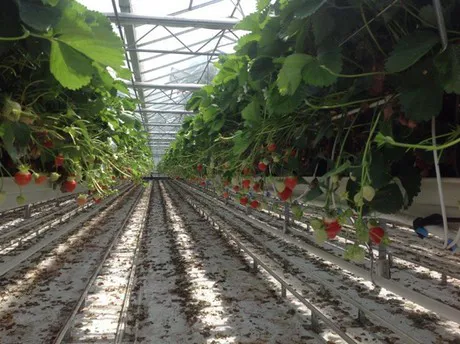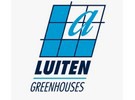"Some soft fruit growers are leading the way and closely follow developments in the area of screening. Others are more wait-and-see," says Ruud den Engelsman of Luiten Greenhouses, who sees growers increasingly opting for diffuse cloths in addition to energy cloths. "But if eventually one grower has taken the step with positive results, then more will soon follow. They are all observing each other carefully."
The cultivation of soft fruit in the Netherlands and Belgium is on the rise, but in the area of screening it is still a relatively small market according to Ruud. "But it really is a growing market. The trend here is that the cost price must be low, so that's why we often already deliver the material plus one man on the site to do the job together with the grower who brings in the rest of the workers." In this context there is one thing that the grower must take into account: if he decides to do everything completely himself, the warranty will expire. "With the help of our experienced professionals, the changing of the cloths is not that difficult."
The lifespan of a screen cloth is about nine to ten years, but in crops where light is even more important, for example for tomatoes, cloths are also already replaced after about six to seven years. "If business is good and at the moment that certainly is the case in soft fruit, then growers do go for cloth changes sooner. In addition to energy cloths, diffuse cloths help to protect the crop against burning with the increasingly brighter sun nowadays."
Luiten Greenhouses often replaces the atlas wires when nearing summer. "That can be done nicely in between the cultivations," Ruud explains. "Next, when the greenhouse is empty, we can replace the screen cloth. Because the atlas wires have already been replaced, a lot of time is saved. Replacing the cloth is relatively easy: loosening, replacing and finishing is generally done in no time at all. Because we have all the materials and machines in stock, we can respond quickly and take action immediately."
In addition to saving costs at a change of cloth by using the existing employees of the grower properly, there is still another development visible: double screens. "By installing two screens on one wire bed, you save on the costs of an extra wire bed, gable wall mounting and all other parts that come with a screening installation. Especially in tomato cultivation, the placement of double screens is already a great success because of the heat requirement in that cultivation. In the cultivation of soft fruit that heat requirement is less, strawberries for example also do need cold, but I do expect that also these crops will see an increase in double screens."
For more information: 
Luiten Greenhouses
www.luiten-greenhouses.com
info@luiten-greenhouses.com
Ruud den Engelsman
ruud@luiten-greenhouses.com
